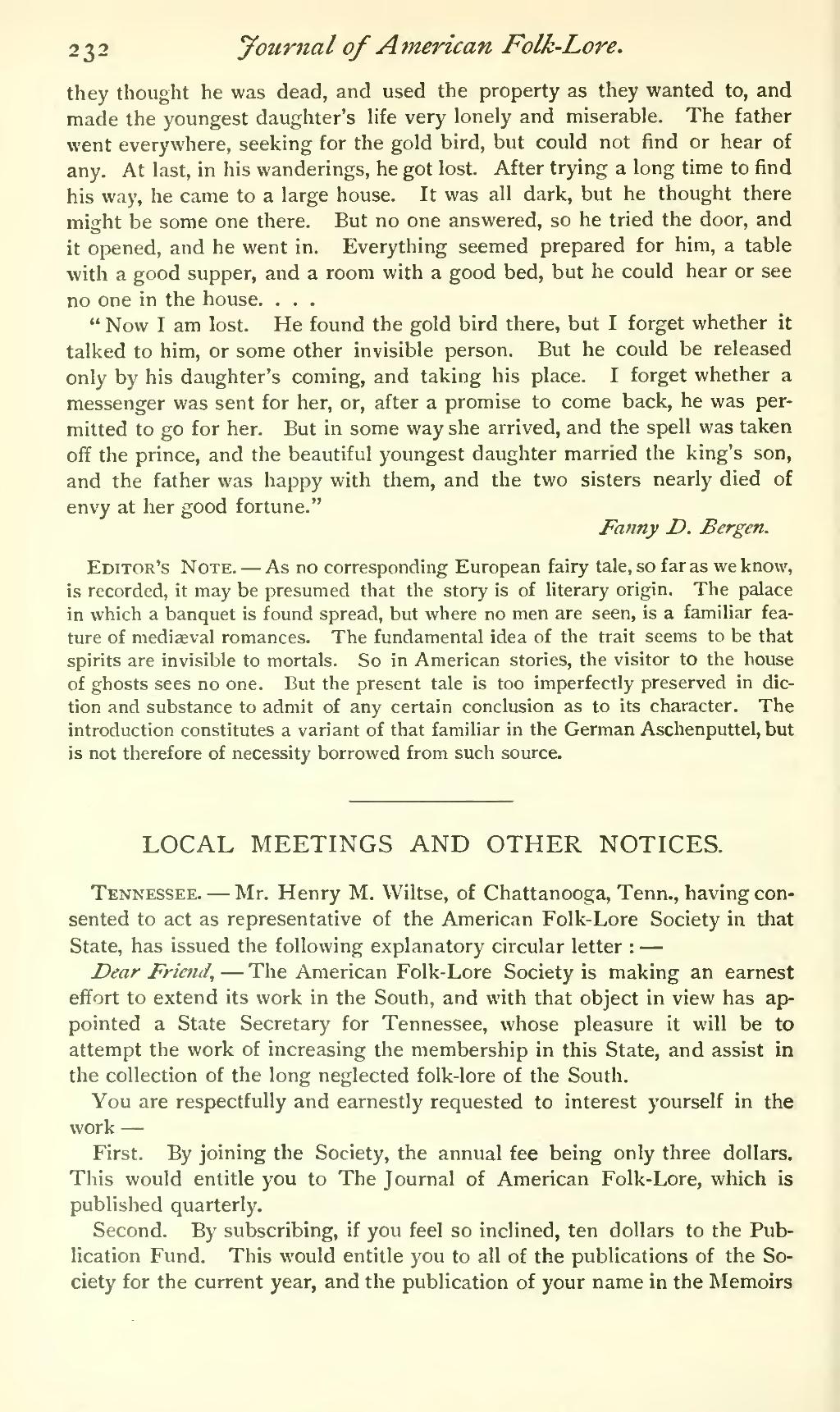232 Journal of A merican Folk-Lore.
they thought he was dead, and used the property as they wanted to, and made the youngest daughter's life very lonely and miserable. The father went everywhere, seeking for the gold bird, but could not find or hear of any. At last, in his wanderings, he got lost. After trying a long time to find his way, he came to a large house. It was all dark, but he thought there might be some one there. But no one answered, so he tried the door, and it opened, and he went in. Everything seemed prepared for him, a table with a good supper, and a room with a good bed, but he could hear or see no one in the house. . . .
" Now I am lost. He found the gold bird there, but I forget whether it talked to him, or some other invisible person. But he could be released only by his daughter's coming, and taking his place. I forget whether a messenger was sent for her, or, after a promise to come back, he was per- mitted to go for her. But in some way she arrived, and the spell was taken off the prince, and the beautiful youngest daughter married the king's son, and the father was happy with them, and the two sisters nearly died of
envy at her good fortune."
Fanny D. Bergen.
Editor's Note. — As no corresponding European fairy tale, so far as we know, is recorded, it may be presumed that the story is of literary origin. The palace in which a banquet is found spread, but where no men are seen, is a familiar fea- ture of mediaeval romances. The fundamental idea of the trait seems to be that spirits are invisible to mortals. So in American stories, the visitor to the house of ghosts sees no one. But the present tale is too imperfectly preserved in dic- tion and substance to admit of any certain conclusion as to its character. The introduction constitutes a variant of that familiar in the German Aschenputtel, but is not therefore of necessity borrowed from such source.
��LOCAL MEETINGS AND OTHER NOTICES.
Tennessee. — Mr. Henry M. Wiltse, of Chattanooga, Tenn., having con- sented to act as representative of the American Folk-Lore Society in that State, has issued the following explanatory circular letter : —
Dear Friend, — The American Folk-Lore Society is making an earnest effort to extend its work in the South, and with that object in view has ap- pointed a State Secretary for Tennessee, whose pleasure it will be to attempt the work of increasing the membership in this State, and assist in the collection of the long neglected folk-lore of the South.
You are respectfully and earnestly requested to interest yourself in the work —
First. By joining the Society, the annual fee being only three dollars. This would entitle you to The Journal of American Folk-Lore, which is published quarterly.
Second. By subscribing, if you feel so inclined, ten dollars to the Pub- lication Fund. This would entitle you to all of the publications of the So- ciety for the current year, and the publication of your name in the Memoirs
�� �
